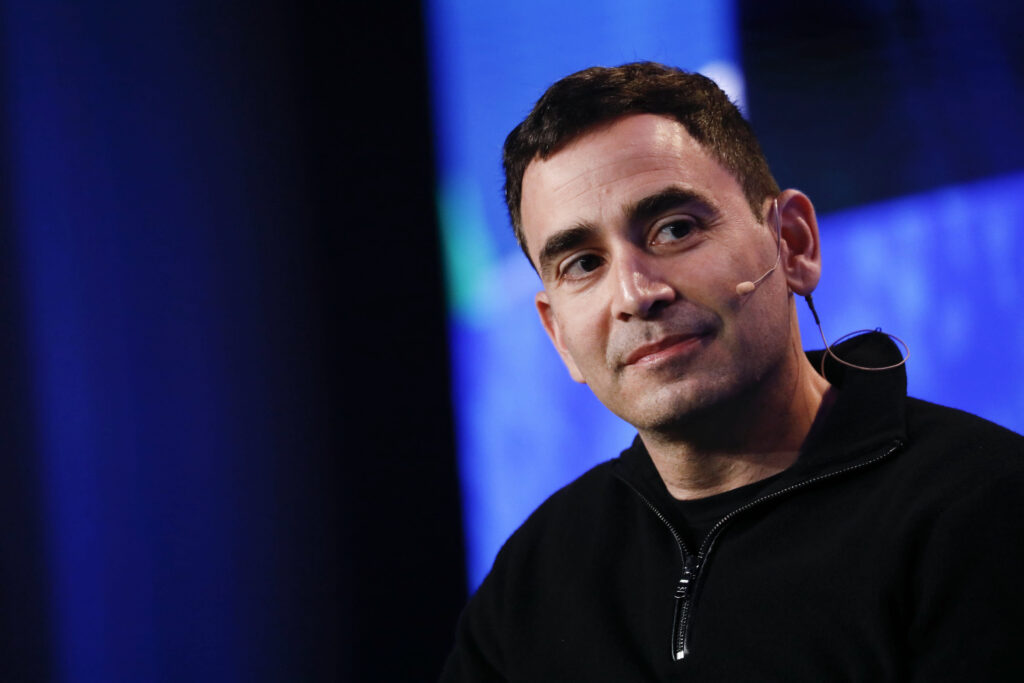
Elad Gil is a serial entrepreneur, an investor, operating executive, and advisor to private companies including Wish, Stripe, Square, Pinterest, OpenDoor, Instacart, Gusto, Checkr, Coinbase, and Airbnb.
Education
Gil has remarkable academic credentials. Among his degrees he earned from the University in California is a BS in Molecular Biology and BA in Mathematics, and a Ph.D. in Biology from MIT. Gil also got involved with the MIT $100K Entrepreneurship Competition.
Career
After earning his Ph.D., Gil went to Silicon Valley and worked in several startups including a short stint to Plaxo as a market seeding consultant with Sean Parker. Gil next went to Google where he began its mobile wireless team, worked on AdSense and helped obtain Android. In 2007, Gil left Google.
In 2008, Gil started Mixer Labs, a service for assisting developers in building geo-location applications that Twitter obtained in December 2009. Gil was Director, Corporate Strategy, and became the Vice President in January 2012, and set up a day-a-week role as a strategic advisor to Twitter as he “decompresses for a year before initiating a new start-up in 2013” as he explained in a July 18 interview.
Gil’s network has traversed the phases of his career. After being idle from Onetta, another start-up that had diminished from 150 people to fewer than 20, Gil was acquainted by one of its board members to a renowned Sequoia Capital partner, who financed in Mixer Labs.
Gil’s Google network was the most valuable to him after he left, but in his last five year since he has been working on different startups, his network from the other founders and executives have become his strongest one.
Gil’s group included Aydin Senkut, who coordinates events to bring in all the other Google alumni in exchanging practical insights on starting and building ventures. The members of the network trades insight on questions such as how to develop revenues faster, how to market a company, who to communicate if you want to increase capital.
The SVSC consists of cliques. There are networks of Stanford alumni, who ran for the same company such as Facebook, PayPal, and Google. At the same time, those who set off their ventures and transacts with the same industry and aggressively challenges at the same time.
The arrival of the cloud has been significant to entrepreneurs because it allows them to rent at a low monthly rate as they don’t necessarily need to spend a lot of money on infrastructure. It allows them to invest more in a venture’s marketing and product development and puts a payment on other adjustments skills.
Gil’s functions in the industry have changed so has his network. In his role as a consultant to small companies, his skills remain noteworthy even though technology changes quickly. Gil facilitates companies with raising capital, hiring and firing people, organization structure, product development, and acquisitions.
And when he focuses his attention to his next startup, Gil will likely be visualizing on the latest early venture insights from others who are in the same position. So the composition and importance of his network will progress.
Color Genomics
Elad Gil co-founded Color Genomics among others like Taylor Sittler, Nish Bhat, and Othman Laraki, a native of Casablanca, Morocco, who serves as company’s CEO, in Burlingame, California. In 2015, Color Genomics accepted an initial $15 million in funding. It raised an additional $45 million in September 2016. Katie Jacobs Stanton became the CMO of Color Genomics in 2016, and Jill Hagenkord became the Chief Medical Officer.
Color Genomic’s purpose is to surge availability for genetic testing. Part of this is to develop access to tests for minorities, in order to better understanding non-Caucasian gene variants. The original cost for the test was approximately 10% of the cost of testing through traditional companies. Later on, the company offered a discounted price for the family members of those who test positive for inherited mutations. In 2017, Color Genomics began taking health insurance for the Color Test.
The technological startup companies have also begun adding Color Genomics testing to their medical packages. The University of Washington and Color Genomics released a widely obtainable database of variants in 27 breast cancer genes based on the given samples from over 70 years old women who have never had breast cancer. The samples were gathered from samples given to the Women’s Health Initiative between 1993 and 2005. In 2018, Color grew its offering to include a $249 test for genetic heart health. The test examines 30 genes to observe for risk of a wide range of genetic heart conditions, including cardiomyopathies, cardiac arrhythmias, and arteriopathies.
The NIH recognized Color funding on September 25, 2018, for their All of Us Research program. On September 27, 2018, Color added a new health area, medication response, to evaluate genes related with commonly prescribed prescriptions, and report on how those genes can affect how individuals process and react to those treatments.